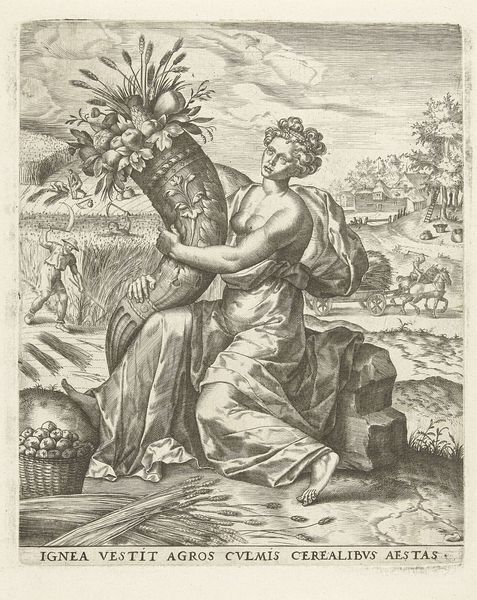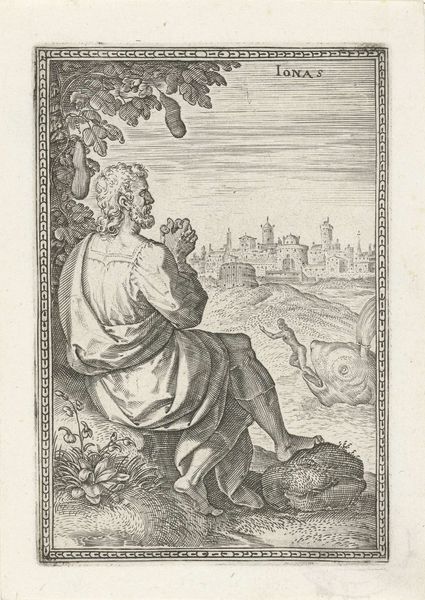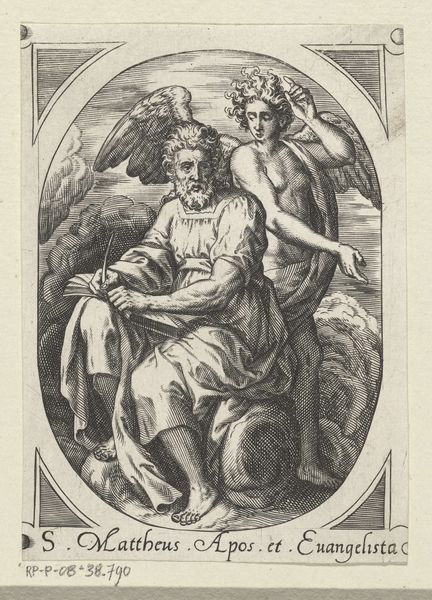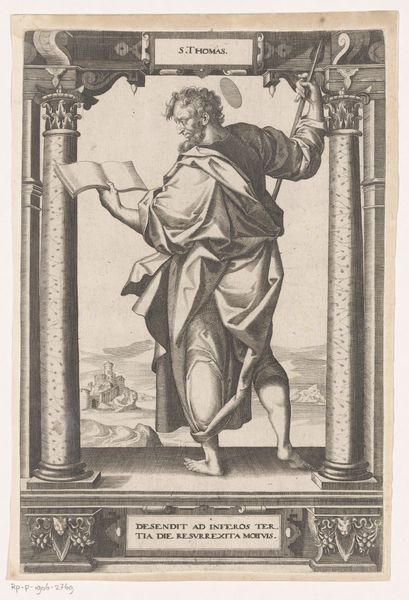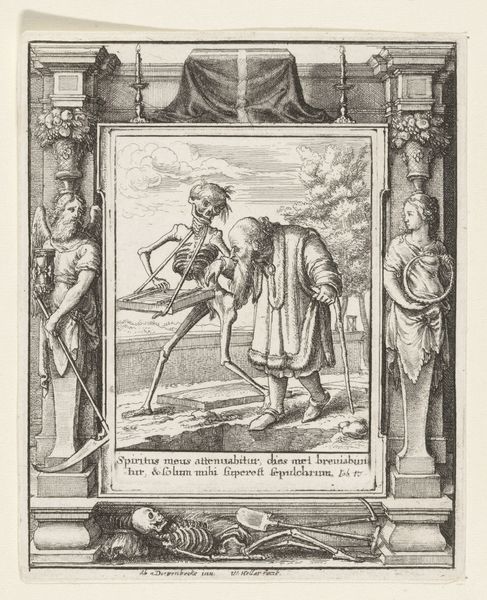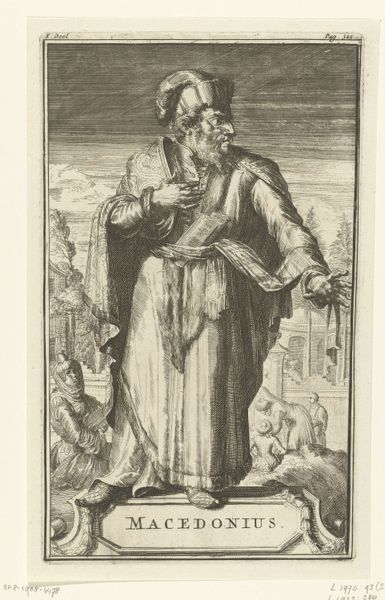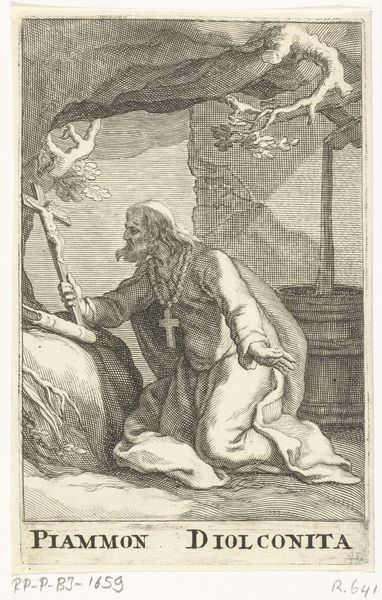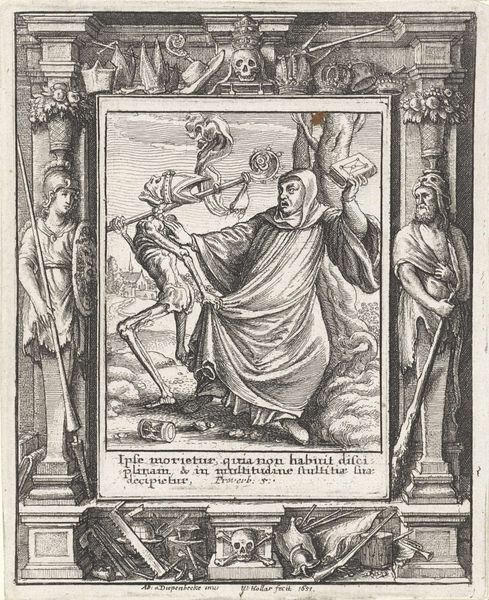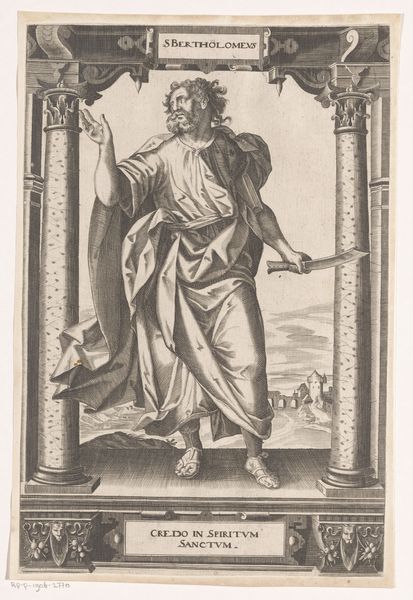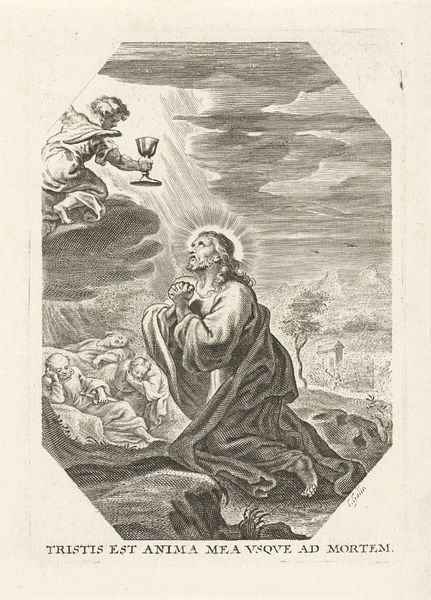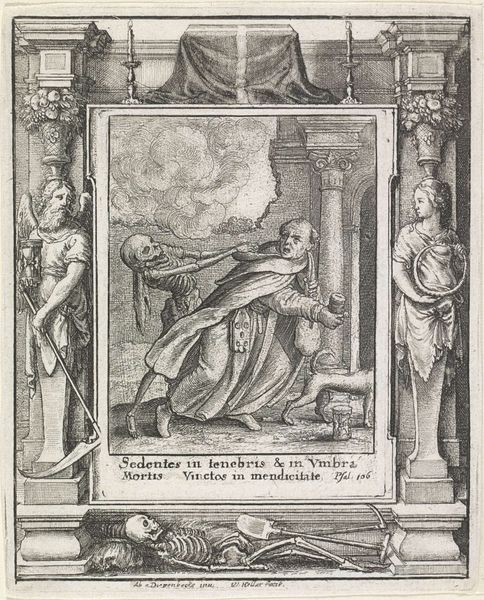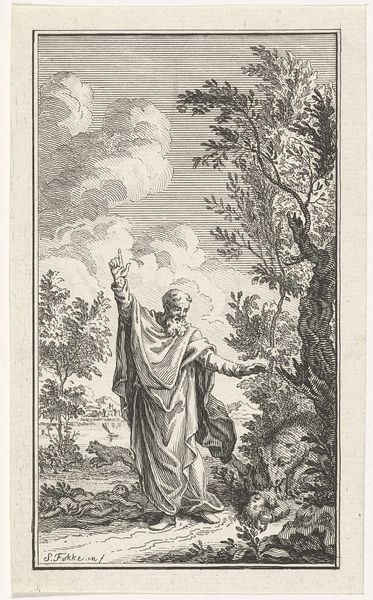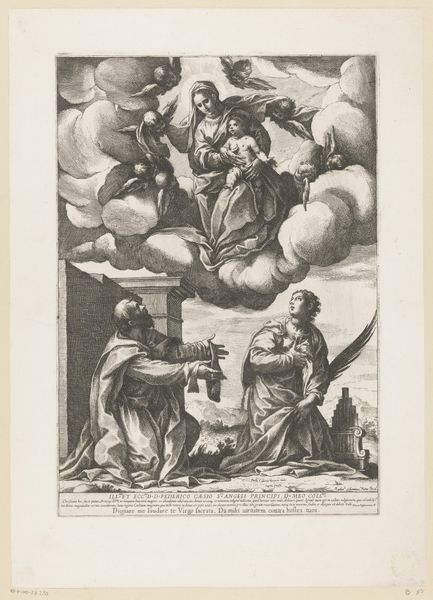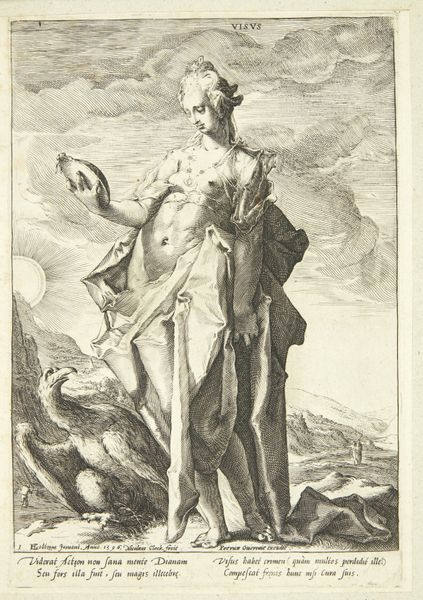
print, engraving
#
narrative-art
# print
#
old engraving style
#
mannerism
#
figuration
#
line
#
history-painting
#
engraving
Dimensions: height 118 mm, width 77 mm
Copyright: Rijks Museum: Open Domain
This print of the Prophet Elijah, currently held at the Rijksmuseum, was made in the late 16th century by Johann Sadeler I. It's an engraving, a process where an image is incised into a metal plate, which is then inked and printed. The striking lines and details are a direct result of the engraver's skilled hand. Each groove was carefully carved, requiring precision and control. This labor-intensive process speaks to a time before mass production, where craft and skill were highly valued. The choice of engraving is significant. Unlike painting or sculpture, prints like this were reproducible, making them accessible to a wider audience. This connects to broader social dynamics – the spread of ideas, religious narratives, and artistic styles through a burgeoning print market. By appreciating the work involved, we realize that even something as seemingly straightforward as a print carries its own distinct history of creative practice.
Comments
No comments
Be the first to comment and join the conversation on the ultimate creative platform.
